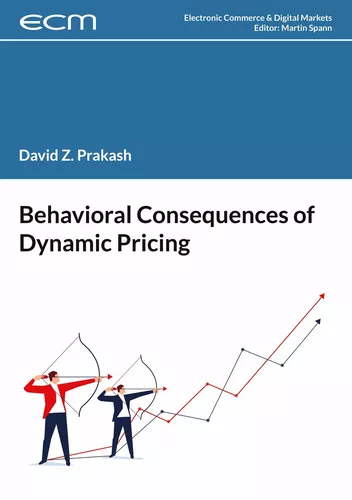
Behavioral Consequences of Dynamic Pricing
Band 12 von 12 in dieser Reihe
Paperback
154 Seiten
ISBN-13: 9783754359938
Verlag: Books on Demand
Erscheinungsdatum: 28.07.2022
Sprache: Englisch
Farbe: Ja
erhältlich als:
inkl. MwSt. / portofrei
Ihr eigenes Buch!
Werden Sie Autor*in mit BoD und erfüllen Sie sich den Traum vom eigenen Buch und E-Book.
Mehr erfahrenHowever, the application of dynamic pricing comes with great challenges. In addition to the technological implementation, companies have to take into account that dynamic pricing can cause complex and unintended behavioral consequences on the consumer side.
The key objective of this dissertation is to provide a deeper understanding of the impact of dynamic pricing on consumer behavior. To this end, this dissertation presents insights from four perspectives. First, how reference prices as a critical component in purchase decisions are operationalized. Second, how customers search for products priced dynamically, differentiated by business and private customers, as well as by different devices used for the search. Third, whether and how dynamic pricing influences the impact of internal reference prices on purchase decisions. Finally, this dissertation demonstrates that consumers perceive price changes as personalized in different purchase contexts, leading to reduced perceptions of fairness and undesirable behavioral consequences.

Martin Spann (Hrsg.)
Martin Spann is a Professor of Electronic Commerce and Digital Markets at Ludwig-Maximilians-Universität (LMU) München - Munich School of Management. Further, he serves as Dean of the LMU Munich School of Management, as board member of the Center for Digital Technology and Management (CDTM) and the Internet Business Cluster (IBC). He is a member of the National Research Council of the Swiss National Science Foundation (SNSF). He studied Economics at the University of Kiel and earned his PhD (2002) as well as his Habilitation (2005) from Goethe University Frankfurt. From 2005 to 2010, he was a Professor of Marketing and Innovation at the University of Passau.








Es sind momentan noch keine Pressestimmen vorhanden.